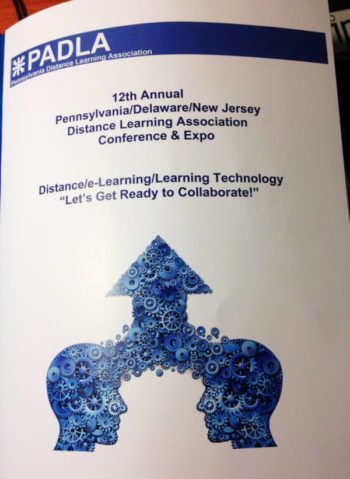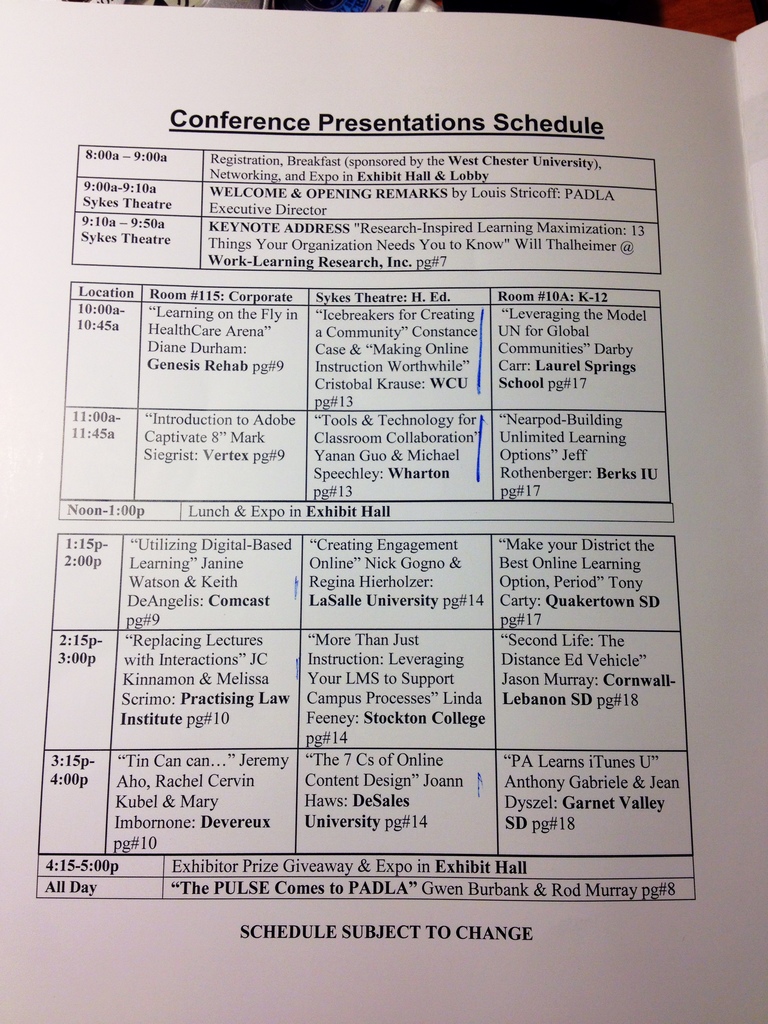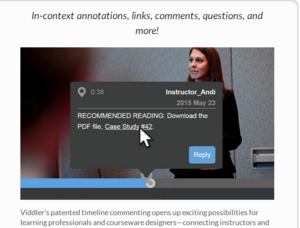Attended PADLA for Latest in e-Learning

PA Distance Learning Association 2014 Conference – Trends & Tools
I wanted to brush up on my online or e-learning knowledge, see the latest trends, research and tools – so when a colleague offered me a very low price ticket to the PADLA Conference I took it. West Chester University hosted the PADLA [Pennsylvania Distance Learning Association] one-day learning event in December with tracks for K-12, college and corporate learning – something here for everyone.
Why Was I Attending an e-Learning Event?
I did a lot of reading and research in education, online resources, instructional technology, and instructional design back in my PhD days at Drexel, but had put all that aside for a few years. I had taken my share of online courses during my MSLIS degree and attended presentations and workshops on incorporating good design into online instruction as I was working towards a potential teaching career at the graduate level. So, it was time to revisit and have a good refresher.
Plus, I have gotten more involved in e-learning and online professional development in my work with nonprofits, associations and libraries. I need to keep up with what tools and technology are being used, what new techniques are being tested, what’s working and what isn’t.
What’s New in e-Learning?
 What has really changed in e-learning is the technology used to deliver online education – synchronously and asynchronously.It made me realize my completely not-live online courses back in 2004, 2005 were practically primitive compared to today. I see the changes happening in my husband’s MBA program at Lehigh University – with cameras that automatically track to any speaker in the room to display to the online students. I saw tools to easily capture video for lessons, improved and more interactive online modules, portable live-streaming kits, ways to measure online engagement, etc. There are tools and systems for video management and delivery, security, monitoring of the entire online teaching/learning experience, e-learning on mobile devices, training delivered by mobile apps and more.
What has really changed in e-learning is the technology used to deliver online education – synchronously and asynchronously.It made me realize my completely not-live online courses back in 2004, 2005 were practically primitive compared to today. I see the changes happening in my husband’s MBA program at Lehigh University – with cameras that automatically track to any speaker in the room to display to the online students. I saw tools to easily capture video for lessons, improved and more interactive online modules, portable live-streaming kits, ways to measure online engagement, etc. There are tools and systems for video management and delivery, security, monitoring of the entire online teaching/learning experience, e-learning on mobile devices, training delivered by mobile apps and more.
Interesting e-learning tools new to me:
Mediasite by sonicfoundry – for webcasting, video management (they even have video streaming in a portable kit – client, camera, audio all in one – can event synthesize a PPT directly to video – on the fly)
Mobile Info Pros – they powered the easy to use conference app for PADLA, but they do other training via text and mobile. They can create either simple mobile sites for a company or an entire training manual and modules all delivered via text and mobile web. Not dependent on a user having the latest smartphone – so it can be good for training offsite, on the worksite. Could also use the tool to deliver encouraging text messages, employee pep talks or even games. [Disclosure- I know one of the founders involved with Mobile Info Pros and I got to demo my own version for an upcoming conference I’m involved with.]
 Viddler – out of Bethlehem, PA – a video learning system – helps to sequence the content for viewers based on educator’s design but still giving some control to the viewer/learner. Includes tons of metrics on engagement. Their player and system is designed to get more interactive viewing instead of passive watching. Plus you can know how long students spent watching, or not, interacting and with which parts. You can add interaction, questions, comments, annotations etc at different points in a video’s timeline.
Viddler – out of Bethlehem, PA – a video learning system – helps to sequence the content for viewers based on educator’s design but still giving some control to the viewer/learner. Includes tons of metrics on engagement. Their player and system is designed to get more interactive viewing instead of passive watching. Plus you can know how long students spent watching, or not, interacting and with which parts. You can add interaction, questions, comments, annotations etc at different points in a video’s timeline.
Particularly impressed with the interactive simulations, videos and ‘gaming’ for legal CE courses being done by Melissa Scrimo of Applied Intelligence Consulting and the Practising Law Institute in NY.
It was nice to be in the audience listening and taking notes, not presenting! Though it was still work of a kind as I was paying attention for things I can pass on to clients, use in my association work and seeking out potential vendor or supplier partner for orgs I work with. I enjoyed picking up new tips on instructional design, teaching, educational apps and listening to case studies on what’s being done that’s new – and how many of the challenges I was learning about in grad school 10+ years ago, are still there.
‘What changes often stays the same.’